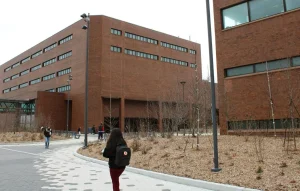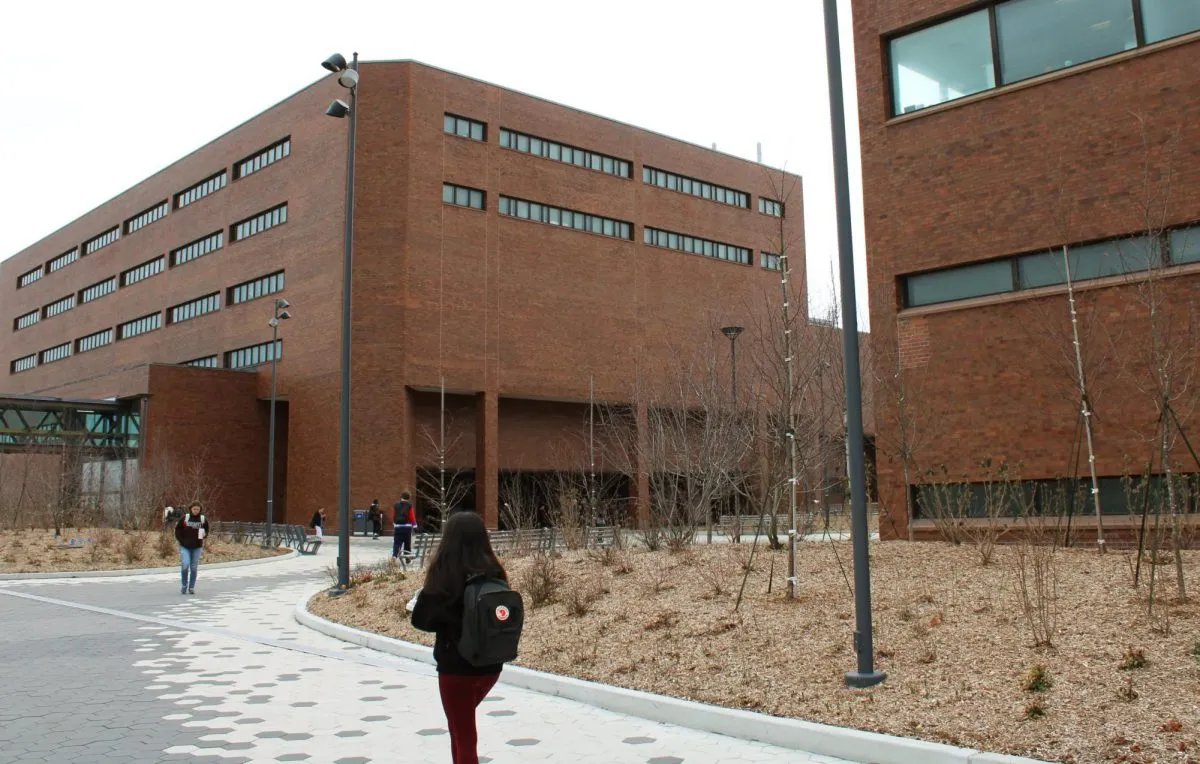The Board of Trustees approved the decision to change the name of UMass Boston’s Phillis Wheatley Hall to Phillis Wheatley Peters Hall after the change was first suggested three years ago.
Originally put forward last year, the proposal was headed by Christian Orellana, a student member of the Restorative Justice Commission and Undergraduate Student Government’s Legislative Speaker. It begins, “Being a leading institute in diversity and creating an anti-racist campus, it is encouraged that UMass Boston proactively takes action to change the racist roots of the name ‘Wheatley Hall.’”
The proposal recommends that “the name of Phillis Wheatley Hall be amended to Phillis Wheatley Peters Hall,” and that all digital references are changed “with expediency upon approval” of the proposal. It also suggests that a physical renaming should occur during the building’s renovations, a step included in the New Campus 25-Year Master Plan.
On most of its webpages, including the map and other location guides, the university refers to the building simply as Wheatley Hall. It is unclear whether the proposal recommends these references to be changed.
The issue surrounding Phillis Wheatley Hall’s name first came to Orellana’s attention when he read a 2023 column in The Mass Media written by then-Production Editor Georgia Berry. Berry wrote that the building was named after Phillis Wheatley Peters, a former slave who became the first Black woman poet to have a published poetry book, and described the exclusion of her surname as “casting a shadow over an important legacy.”
The name Phillis came from the slave ship that brought her to America, and the name Wheatley was the name she received from her enslavers, according to a 2022 open letter attached to Orellana’s proposal. She took the name Peters after she married a free Black man, John Peters, making that name the only name she willingly received. Yet, the building is titled only with Peters’ first two names.
Orellana said in this proposal that the name change would be in accordance with the inclusive environment that UMass Boston promotes.
“By using the name ‘Phillis Wheatley Peters,’ UMass Boston will uphold its Diversity and Inclusion Ideals, represent the complex experiences of people of various identities, ethnicities, races, and backgrounds, as well as support students to find their own identity on campus,” the proposal reads.
The proposal was backed by many departments at UMass Boston, including the political science, English, philosophy, communication and American studies departments, among others. Other groups also signed onto the proposal, such as the Black Faculty & Staff Association and Restorative Justice Commission, as well as several individuals.
“I could not have done it without a lot of people, including folks in student government, deans, department chairs, administrators, and more. I must thank Professor [Dana] Miranda, Professor [Chanel] Fields, and Dr. [Chiquita] Baylor for their support in the Black Faculty and Staff Association, as well as Dr. Cooper and the Restorative Justice Committee, for their support.” Orellana said.
Orellana added that this project represents what can be accomplished with student, faculty and administrative collaboration, and he’s excited for what can be accomplished in the future.
Said Orellana, “I hope this elevates the importance of Phillis Wheatley Peters name on campus. It’ll allow all new and current members of campus to remember and learn who Phillis Wheatley Peters is, and why we celebrate her as the first African American Poet during the birth of our nation as we still honor and celebrate her poetry that defined history.”





